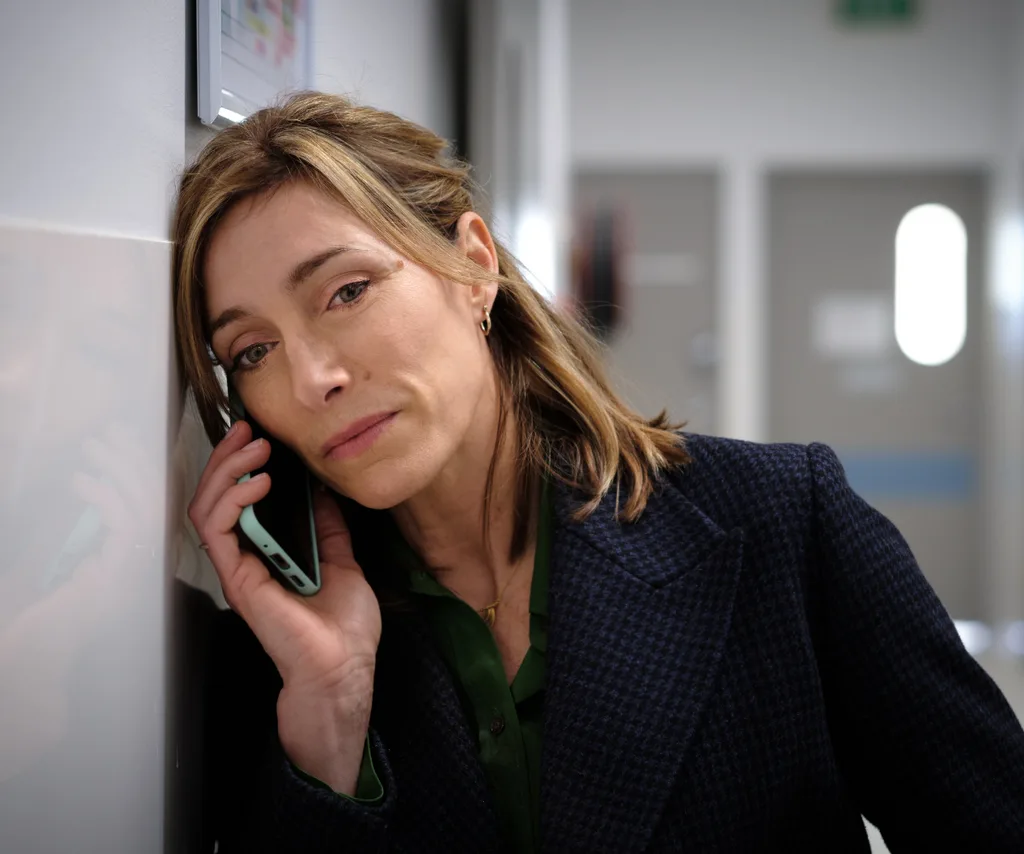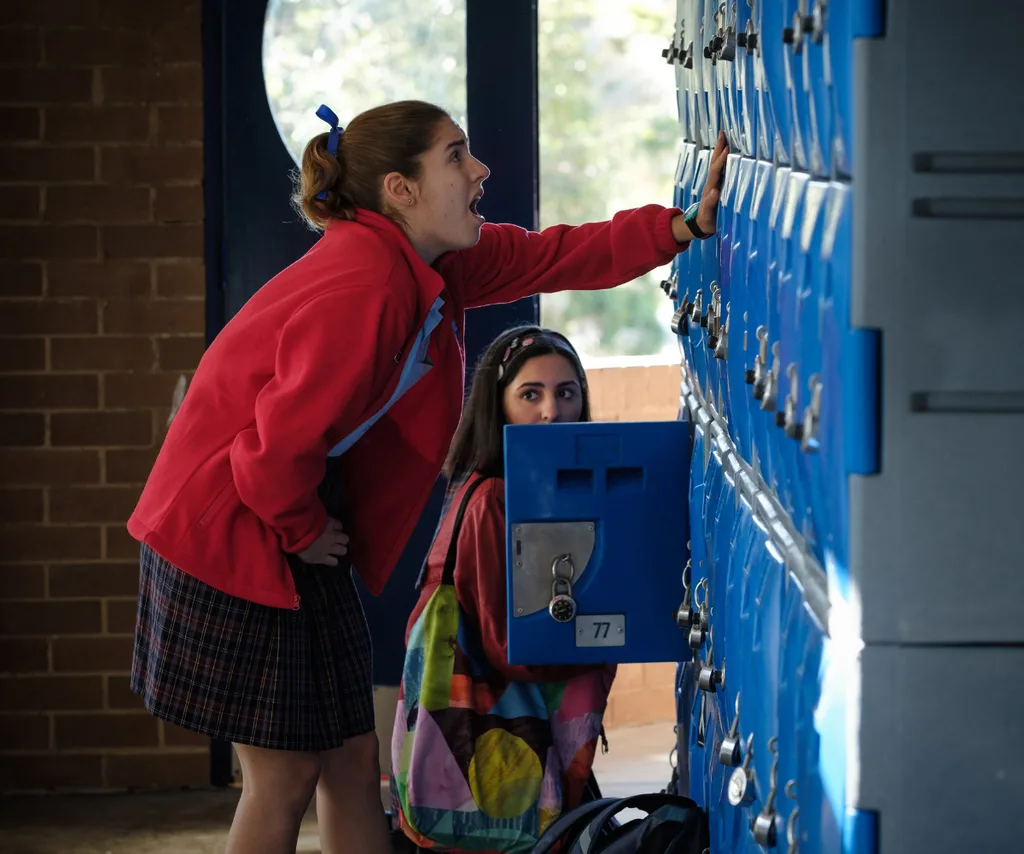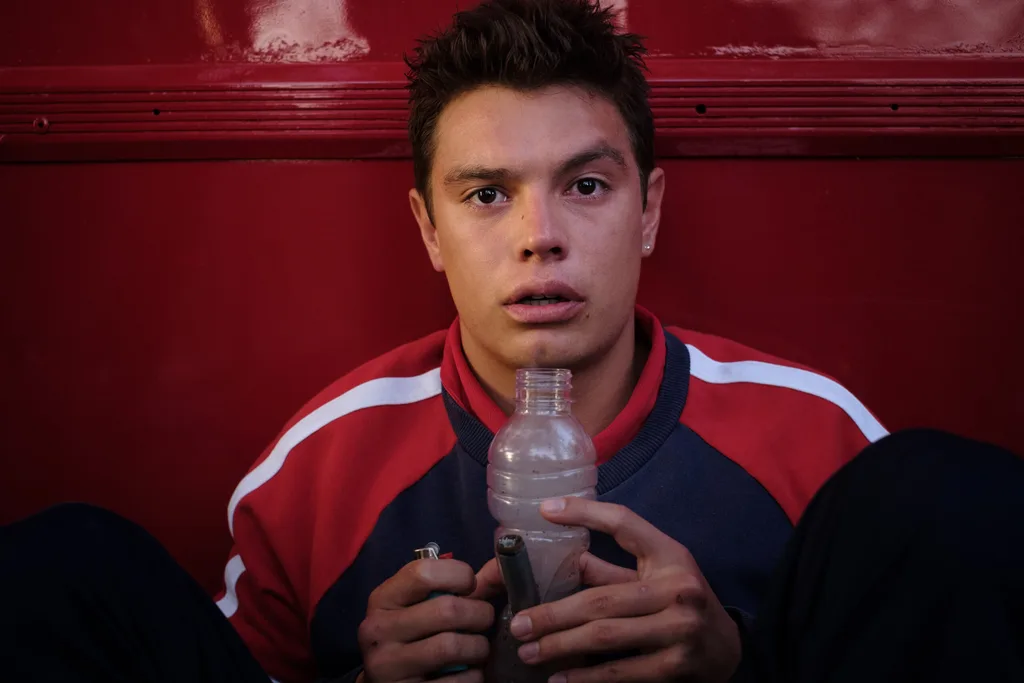Love My Way was one of those iconic Aussie television series that will forever hold a place in our hearts.
So, when we heard the creators of the hit series were back with a new original show for Stan, Bump, we were counting down the days to its January 1st premiere.
The 10-part original series centres around Oly (played by Nathalie Morris), an ambitious and high-achieving teenage girl who suddenly finds herself in labour despite being completely unaware she’d fallen pregnant.
The drama series stars Claudia Karvan who leads as Oly’s mother and also acts as a producer of the series. Angus Sampson (Fargo) also appears in the charming series as well as up-and-coming stars, Nathalie Morris and Carlos Sanson Jnr who plays her baby daddy, Santiago.
We chat to the rising stars, Nathalie and Carlos about the drama that’s sure to find its way into your heart, too.

Claudia plays Oly’s mum.
(Stan)Tell us about your characters…
Nathalie: Oly’s a whip-smart, determined year 11 student, with a very clear vision of her future. She’s motivated by great female leaders, like Jacinda Ardern, and Alexandria Ocasio-Cortez, and she manages to ignore most of what’s going on in her personal life because she’s so set on achieving her long-term goals: to study at Harvard and work for the UN. Oly gives birth to a surprise baby in the first few minutes of the show, and this shock arrival kicks off a wild chain of events that forces her to face up to the uncomfortable, scary, thrilling, chaotic parts of her life, step outside of her comfort zone, and find out what she’s really made of.
Carlos: Santi is a creative trapped in a jock’s body, he is a boy’s boy, a talented football player, and cheeky at times but his passion lie’s in the arts. Deep down, Santi is a romantic, and he uses his art as an outlet to express his feelings. In particular, the feelings he doesn’t quite know how to articulate.

Oly’s baby arrives as a complete surprise.
(Stan)How do you relate to a teen going through such an ordeal so you can play that on screen?
Nathalie: I’ve never experienced something as shocking as unexpected labour, but I’ve always put very high expectations on myself and I’ve had to deal with curveballs and come to terms with unexpected new realities. That’s one of the things I love most about the show – it’s celebration of mistakes, awkward moments, and bizarre behaviour.
I couldn’t relate to the motherhood aspect of the show at first, but there were so many mothers in the cast and crew that shared their hilarious – and horrifying – stories with me throughout the shoot and showed me how to hold a baby, breastfeed, change a nappy etc. – those conversations were actually one of the greatest parts about being in this production.
Carlos: Santi and I are very very similar, sometimes you hear people talk about how they were born to play certain roles. It definitely feels that way for me, especially when I look at the parallels between Santi and I. We were both born in Australia with Chilean parents, we both love football, we both got into trouble at school, we both follow our creative pursuits (mine acting, his art), and to be honest, we are both sensitive guys…yes it’s true, I like to think I’m in touch with my emotions.
I think the biggest difference between us is Santi’s naivety. He is younger, still in school, and in a way sheltered from the real world. That is until of course he is forced to deal with adult problems (like raising a baby). I guess he’s got the baby department over me!

Santi’s world is turned on its head.
(Stan)You both have to film a few intimate scenes, not just with one another, what’s it like filming those?
Nathalie: We had the incredible Danielle Micich as our intimacy coach and she worked with each director in rehearsals to choreograph very distinct and honest sex scenes. Sometimes we felt the urge to laugh to break the awkwardness but she urged us to stay only in relationship with each other during those scenes and not with anyone else in the room.
Carlos: It was something I had never done before so it was a really interesting process, and a great learning experience. We had an intimacy coach for rehearsals and on set, who, much like choreographing a fight scene, guided us through movements, boundaries, places we could touch, places we couldn’t. It was all about supporting your scene partner with what they felt comfortable with, communication was key.
.png?fit=900%2C751)
.png?resize=380%2C285)
.png?resize=380%2C285)